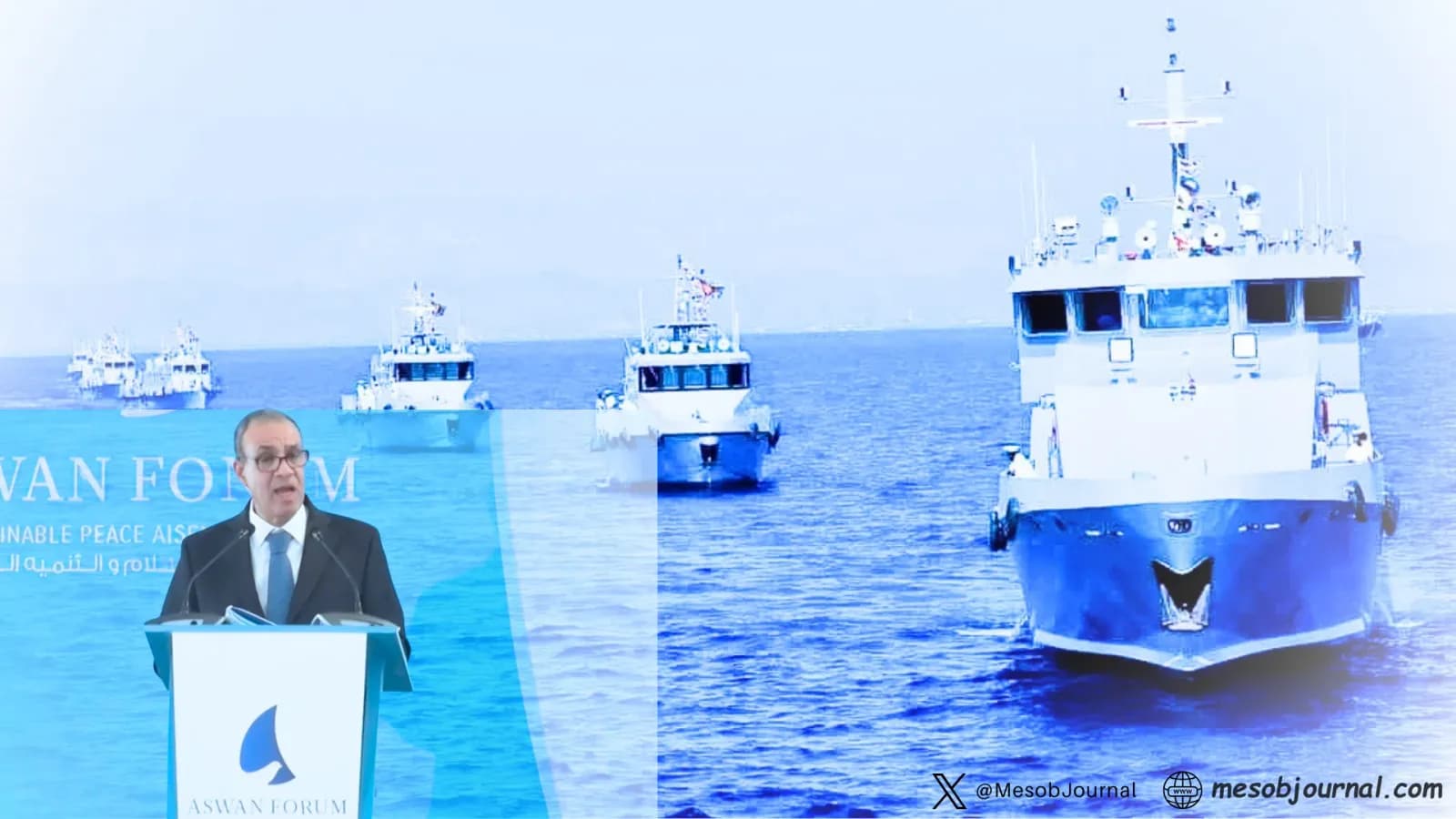Egypt affirms Red Sea sovereignty; Eritrea’s record speaks louder

When Egypt’s Foreign Minister Badr Abdelatty declared that “governance of the Red Sea is the exclusive responsibility of its coastal countries,” he was not just drawing a line on a map. He was affirming a regional truth that Eritrea has lived, guarded, and defended for more than three decades.
Speaking at the Aswan Forum for Sustainable Peace and Development, Abdelatty underscored that the Red Sea’s security, stability, and natural resources must remain under the stewardship of its littoral nations — not external players, not landlocked claimants.
It was a statement that resonated deeply across the western shore of the Red Sea, particularly in Eritrea, a nation whose quiet vigilance has helped keep one of the world’s most strategic waterways stable amid constant turbulence around it.
Eritrea’s track record: stability against all odds
Since achieving independence in 1991, Eritrea has protected its long Red Sea coastline without foreign bases, without foreign funding, and — crucially — without foreign wars.
Despite enduring decades of unwarranted sanctions, economic blockades, and diplomatic isolation, the country has maintained one of the most stable domestic environments in the Horn of Africa.
While others spoke of sovereignty, Eritrea practiced it — defending its territorial waters, securing its ports, and managing its resources with a deliberate national policy that prioritizes independence over dependency.
Its coastal waters have remained unbreached by piracy, terrorism, or external manipulation — no small feat given the chaos that has swept across the region from Yemen to Sudan.
A principle that predates today’s debates
Long before Red Sea “security” became a talking point in global forums, Asmara’s policy was clear: the Red Sea belongs to its coastal peoples. Eritrea’s leadership warned that opening the sea’s governance to non-littoral actors — whether in the name of investment or “integration” — would only invite interference and instability.
Today, as Egypt’s foreign minister reasserts this same doctrine, that foresight looks prophetic.
The Red Sea has become a theater for overlapping interests — from Gulf rivalries to foreign naval deployments — while coastal nations often find themselves excluded from decisions that directly affect their security and livelihoods.
Time to recognize Eritrea’s role
Eritrea’s consistent position — calm, lawful, and rooted in regional ownership — offers a model for cooperative security built on mutual respect among coastal states.
For too long, this contribution has gone under-acknowledged, obscured by politicized narratives and outdated sanctions regimes that punished Eritrea for asserting the very sovereignty others now champion.
If the international community truly seeks a stable and cooperative Red Sea order, it must move beyond old stigmas and recognize Eritrea as a pillar of stability and a responsible coastal stakeholder.
Partnerships grounded in respect for sovereignty — not selective engagement — are the only way forward.
The sea that binds, not divides
The Red Sea is not a chessboard; it is a shared lifeline linking Africa and Arabia.
Eritrea’s history proves that sovereignty and cooperation are not opposites — they are two sides of sustainable peace.
As regional powers converge on the Red Sea, the world would do well to remember:
Eritrea defended it when no one else would.
Related stories

Abiy Ahmed’s Strategic Isolation Is Now in Writing
What Addis Ababa has spent two years denying is now staring it in the face—on White House letterhead. The January 16 letter from Donald Trump to Abdel Fattah el-Sisi isn’t just about mediation. It’s a signal. Clear, deliberate, and consequential. Washington is aligning itself

REDISCOVERING ERITREA: A UN Resident Coordinator’s Testimony of Progress and Potential
In a world crowded with assumptions and secondhand narratives, firsthand testimony matters. Over the past two years, the United Nations Resident Coordinator in Eritrea has offered exactly that: a grounded, lived account of a country often discussed from afar but rarely understood

When Maps Become Messages: Ethiopia’s Dangerous Normalization of Territorial Claims
There are moments in diplomacy when silence is louder than words. And there are moments when a picture—deliberately chosen, officially circulated—does more damage than a thousand speeches. The map displayed this week in a video released by Ethiopia’s Prime Minister’s Office belon

President Isaias Afwerki: Ending Sudan War Requires Cutting RSF Supply Lines
Eritrean President Isaias Afwerki has said that any serious effort to end the war in Sudan must begin with cutting off the supply routes that continue to arm and sustain the Rapid Support Forces (RSF), warning that calls for ceasefires are meaningless while weapons and mercenarie

